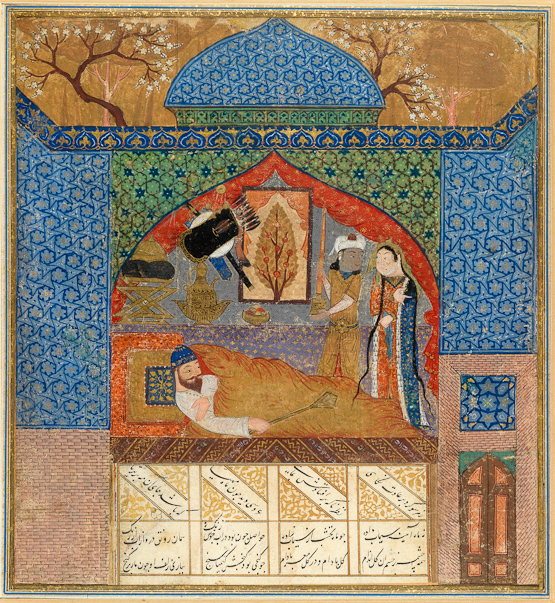The Shahnameh of Ferdowsi reviving the Persian identity and culture

EghtesadOnline: More than a thousand years ago a Persian poet named Ferdowsi of Tous collected and put into heroic verse the millennium old mythological and epic traditions of Iran. It took him thirty years to write the sixty thousand verses called “The Shahnameh”.
“This monumental tome is one of the most important literary works of Iran and like other great epics, such as Gilgamesh, The Odyssey, Nibelungenlied and Ramayana; it is a record of the human imaginative consciousness. It is well known and has been adapted throughout the Near East, Central Asia and India,” Dr Farzad Ghaemi, the assistant professor in Department of Persian Language and Literature of Ferdowsi university of Mashhad said.
“Ferdowsi’s Shahname is a collection of epic stories of which narrative link has made a huge whole, not a whole with independent components, but a whole that is linked with an integrated longitudinal direction,” ISNA quoted him as saying.
“Shahaname is like other works of art such as Khodayname, with political, religious and historical approaches that is considered as a type of hagiology,” Ghaemi went on to say.
“Hagiology is not only the narration of historical events, but also it describes ideology, world formation, and the universe. Moreover, it is a description to form a country,” according to him.
“Shahname of Ferdowsi has a historical, cultural, literal and civilization background that many other epics of the world lack. It surpasses at least 500 years of Demythologization of written epics; for this reason, it is more closely related to the intellectual space of the civilized human life, to which many other well-known epics are not comparable with,” he said.
“This great work of art plays the role of identity protector of Iranian and Shia in two levels of textual level among elites; and also narrative among narrators and story tellers. If we aim to find a couple of keywords for Iranian discourse in modern era, one of which will be Shahname of Ferdowsi,” the assistant professor stated.
“Context of Ferdowsi’s Shahname has the capacity to revive Iranian lost identity. In western literature, many texts have been imitated from Shahname stories, it means that Shahname could influence many masterpieces of the world independently and it is known as one of the most influential epic works of the world,” he noted.
“Shahname owns a story-telling nature, so it is easier to translate it compared to Hafiz and Khayam poems. This is one of the reasons that Shahname is so effective in the world,” Ghaemi said.
Ferdowsi’s Shahname is a documentary legend that expresses Iranian nation formation of human identity. This masterpiece is on one side a human story and on the other side, it is the story of Iran, and on another side , it is the story of struggle with his destiny. Human has been always in battle with destiny, history, and his own world, and Shahname has been successful in narrating this battle for human.
“The stories of the Shahnameh tell the long history of the Iranian people. It begins with the creation of the world and the origin myths of the arts of civilization (fire, cooking, metallurgy, social structures, etc.) and ends with the Arab conquest of Persia in the seventh century, A.C.E. A mix of myth and history, the characters of Shahnameh take the readers on heroic adventures filled with superhuman champions, magical creatures, heart-wrenching love stories, and centuries-long battles,” he continued.
“Shahname is a book without any impact of race, ethnicity, religion and nationality. In western countries, many studies have been performed on Shahname”.
“Wherever Persian influence has spread, the stories of the Shahnameh become deeply embedded in the culture, as amply attested by their appearance in such works as The Kite Runner and the love poems of Rumi and Hafez. The sweep and psychological depth of the Shahnameh is nothing less than magnificent as it recounts classic tales like the tragedy of Rostam and Sohrab,” Ghaemi who has specialty in Shahnameh, epic literature and mythology said.


